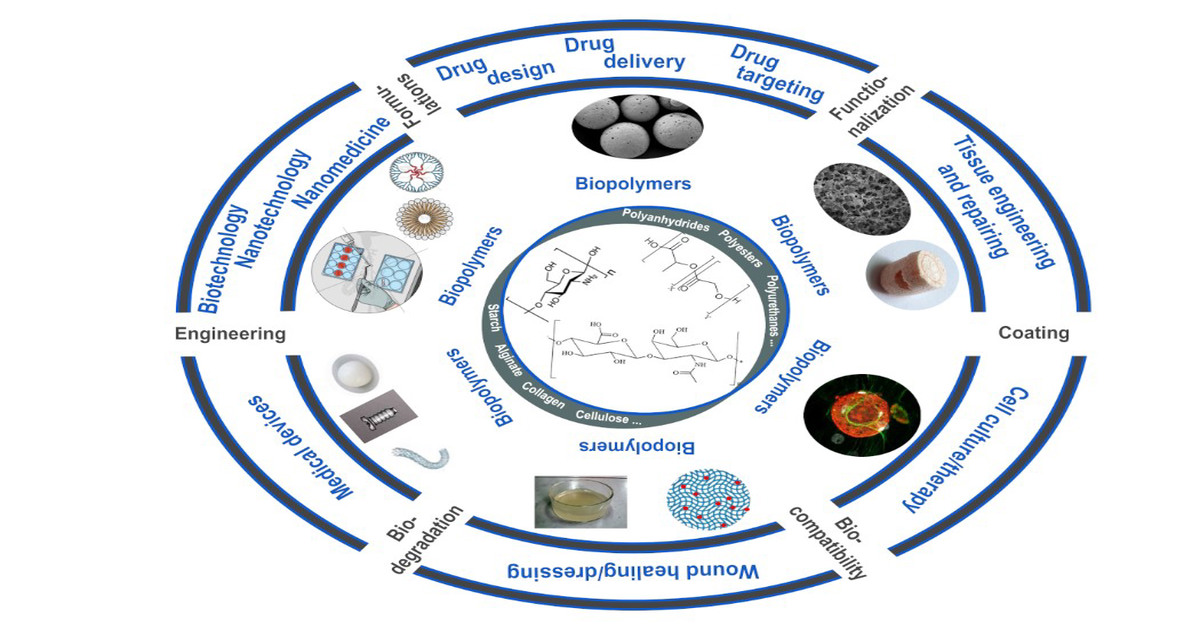Biopolymers for Biomedical and Pharmaceutical Applications
A special issue of Pharmaceutics (ISSN 1999-4923). This special issue belongs to the section "Physical Pharmacy and Formulation".
Deadline for manuscript submissions: closed (31 March 2024) | Viewed by 4071

Special Issue Editors
Interests: biomaterials, controlled drug delivery; nanomaterials; nanomedicine; biomedical research; synthesis and characterization of biocompatible micro and nanoparticles; tissue engineering
Interests: biomaterials; biodegradable polymers; controlled release of active components; tissue engineering; nanomedicine; synthesis and characterization of micro/nano particles; understanding the interaction of biomaterials with biological entities
Special Issue Information
Dear Colleagues,
The main goal of this Special Issue is to provide a comprehensive collection of the most recent advances in research related to the biopolymers, either natural or synthetic, as well as their applications in medical and pharmaceutical fields. Biopolymers and their composites attract special attention due to their unique properties, biocompatibility, versatility, and flexible nature. Thus, its potential application is constantly expanding. Biopolymers can be prepared into various forms such as micro/nanoparticles, 3D scaffolds, hydrogels, and films, or they can be combined with other materials (composites) depending on the application demands. This Special Issue on biopolymers used for medical and pharmaceutical applications will bring together experts from materials science, chemistry, biology, pharmacy, medicine, physics, nanotechnology, etc., to review the current state of the art and to express outstanding research needs related to this topic. Types of manuscripts to be featured include reviews, original research articles, and perspectives. Multidisciplinary research relating to advances in the production, characterization, and applications of biopolymers, as well as the design of effective drug delivery systems, tissue engineering, wound healing, cell therapy, and other themes not limited to this, is welcomed.
We look forward to receiving your contributions.
Dr. Magdalena Stevanović
Dr. Nenad Filipovic
Guest Editors
Manuscript Submission Information
Manuscripts should be submitted online at www.mdpi.com by registering and logging in to this website. Once you are registered, click here to go to the submission form. Manuscripts can be submitted until the deadline. All submissions that pass pre-check are peer-reviewed. Accepted papers will be published continuously in the journal (as soon as accepted) and will be listed together on the special issue website. Research articles, review articles as well as short communications are invited. For planned papers, a title and short abstract (about 100 words) can be sent to the Editorial Office for announcement on this website.
Submitted manuscripts should not have been published previously, nor be under consideration for publication elsewhere (except conference proceedings papers). All manuscripts are thoroughly refereed through a single-blind peer-review process. A guide for authors and other relevant information for submission of manuscripts is available on the Instructions for Authors page. Pharmaceutics is an international peer-reviewed open access monthly journal published by MDPI.
Please visit the Instructions for Authors page before submitting a manuscript. The Article Processing Charge (APC) for publication in this open access journal is 2900 CHF (Swiss Francs). Submitted papers should be well formatted and use good English. Authors may use MDPI's English editing service prior to publication or during author revisions.
Keywords
- formulations, engineering, functionalization
- biotechnology, nanotechnology, nanomedicine
- drug design/delivery/targeting
- tissue engineering and repairing
- cell culture/therapy
- wound healing/dressing
- coatings
- medical devices
- biocompatibility
- biodegradation







